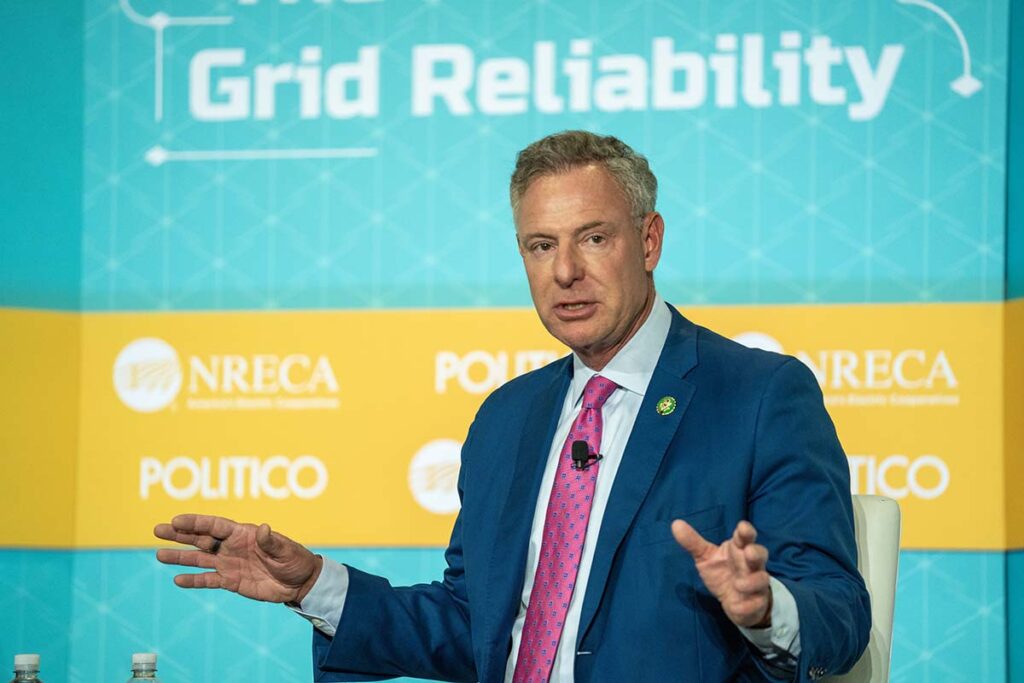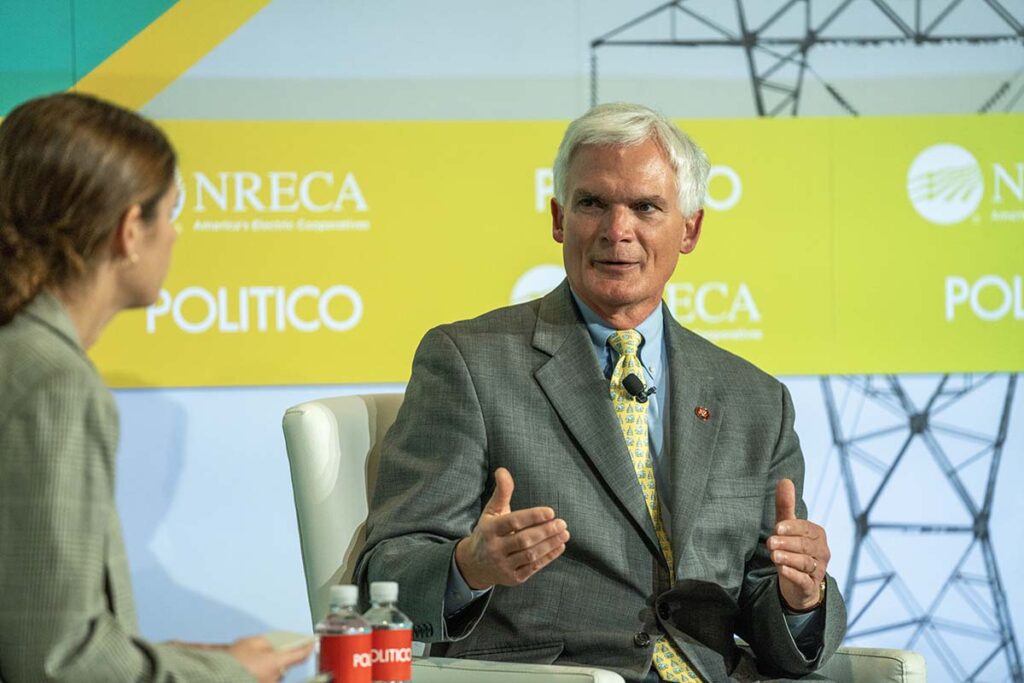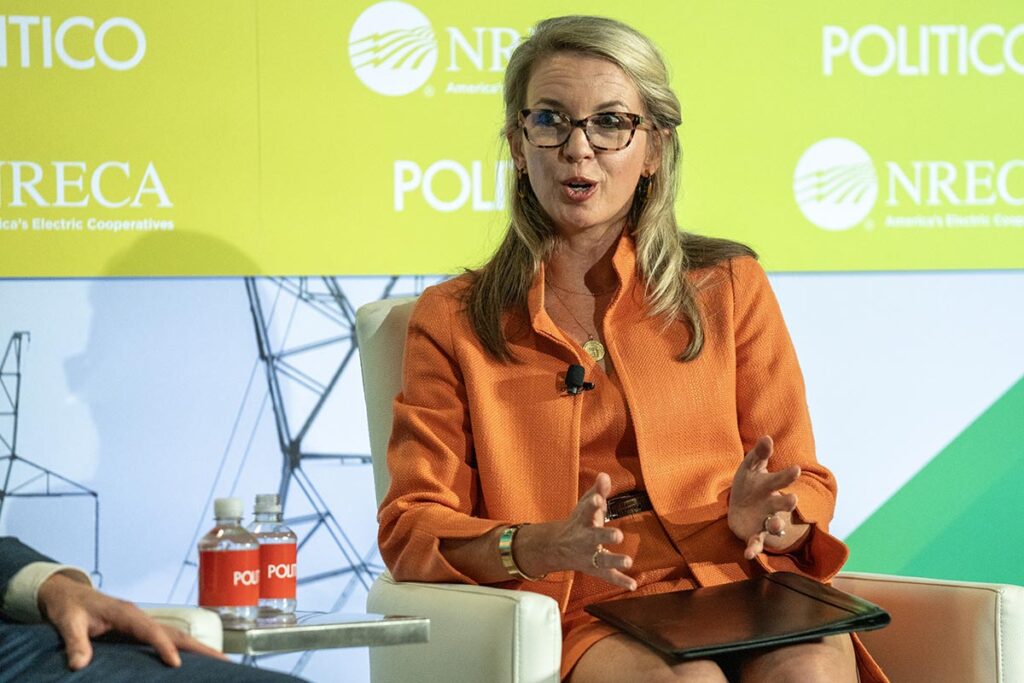Members of Congress, electric cooperative leaders and energy analysts warned Wednesday that escalating demand for electricity is threatening to outpace supply as the federal government pushes to accelerate the transition to cleaner energy.
“We’re using more and more electricity,” said NRECA CEO Jim Matheson, citing increased demand for power from data centers, artificial intelligence and manufacturers.
“It’s a good news story in terms of the economy growing,” he said at a POLITICO event sponsored by NRECA on the future of grid reliability. “The question is just how is the electric grid going to keep up and meet that growth?”
Members of Congress from both political parties agreed that America needs to dramatically step up its electricity generation, which they said can only be done if lawmakers make it easier for electric co-ops and other utilities to get permits to expand their systems.
“We need to build a boatload of transmission in the next few decades—200,000 miles of transmission,” said Rep. Scott Peters, D-Calif.

Without those new transmission lines, renewable energy sources such as solar and wind won’t have anything to hook up to, said Peters, who serves on the House Energy and Commerce Committee.
Peters and fellow committee member Rep. Bob Latta, R-Ohio, said they support bipartisan efforts to streamline the federal permitting process so that utilities can get quicker approvals from agencies to build new infrastructure. They also want to limit how long legal challenges to federal permitting decisions can drag on.
“We have to make everything move faster,” Peters said.
Latta said there are 85,000 manufacturing jobs in his congressional district that depend on reliable power from a broad mix of sources, including nuclear.
“If we don’t have affordable power, the companies can’t compete, but most importantly they can’t provide the jobs for all those people across northern Ohio,” Latta said.

Matheson said the power supply problem would be exacerbated by the Environmental Protection Agency’s proposed power plant rule, which seeks to eliminate carbon emissions by mandating the use of new technology in new and existing coal and natural gas generating facilities.
“This proposed rule has a couple of fundamental flaws,” Matheson said. “First, we believe the proposed rule exceeds EPA’s authority under the Clean Air Act. Second, the proposed rule mandates the use of two technologies that aren’t ready for prime time.
“You’d either have to use carbon capture and sequestration or you’d have to use hydrogen and you’d have to be ready to do that by 2031, which is not that far away when it comes to planning and investments in infrastructure in the electric sector. So how do we get there when these technologies aren’t even ready?”
He said the rule would mean “less electricity, more power outages and higher expense.”
“That’s not what we should be doing,” he said.

Heather Teilhet, senior vice president of external affairs at Oglethorpe Power Corp. in Georgia, said the proposed EPA rule could affect the affordability of electricity for the generation and transmission cooperative’s 38 distribution co-op members, which serve some of the poorest counties in the state.
“When there is an increase in the cost of energy, we have nowhere else to turn to pay for that increase except our 38 co-ops, and they have nowhere else to turn except to pass that on to the rural families and businesses that are in their service territory,” she said. “We have a unique perspective in looking at this through the eyes of a cooperative.”
Erin Kelly is a staff writer at NRECA.